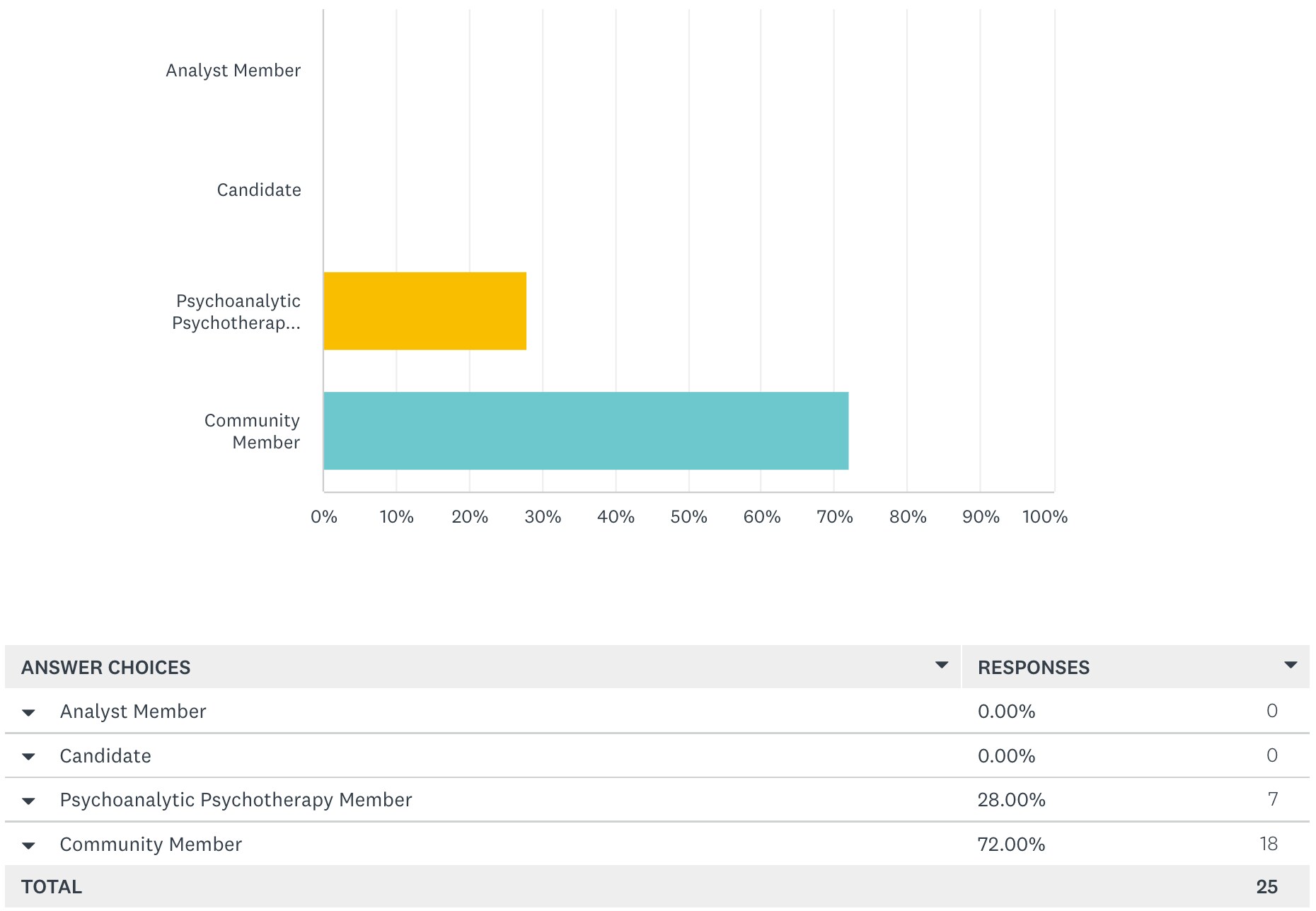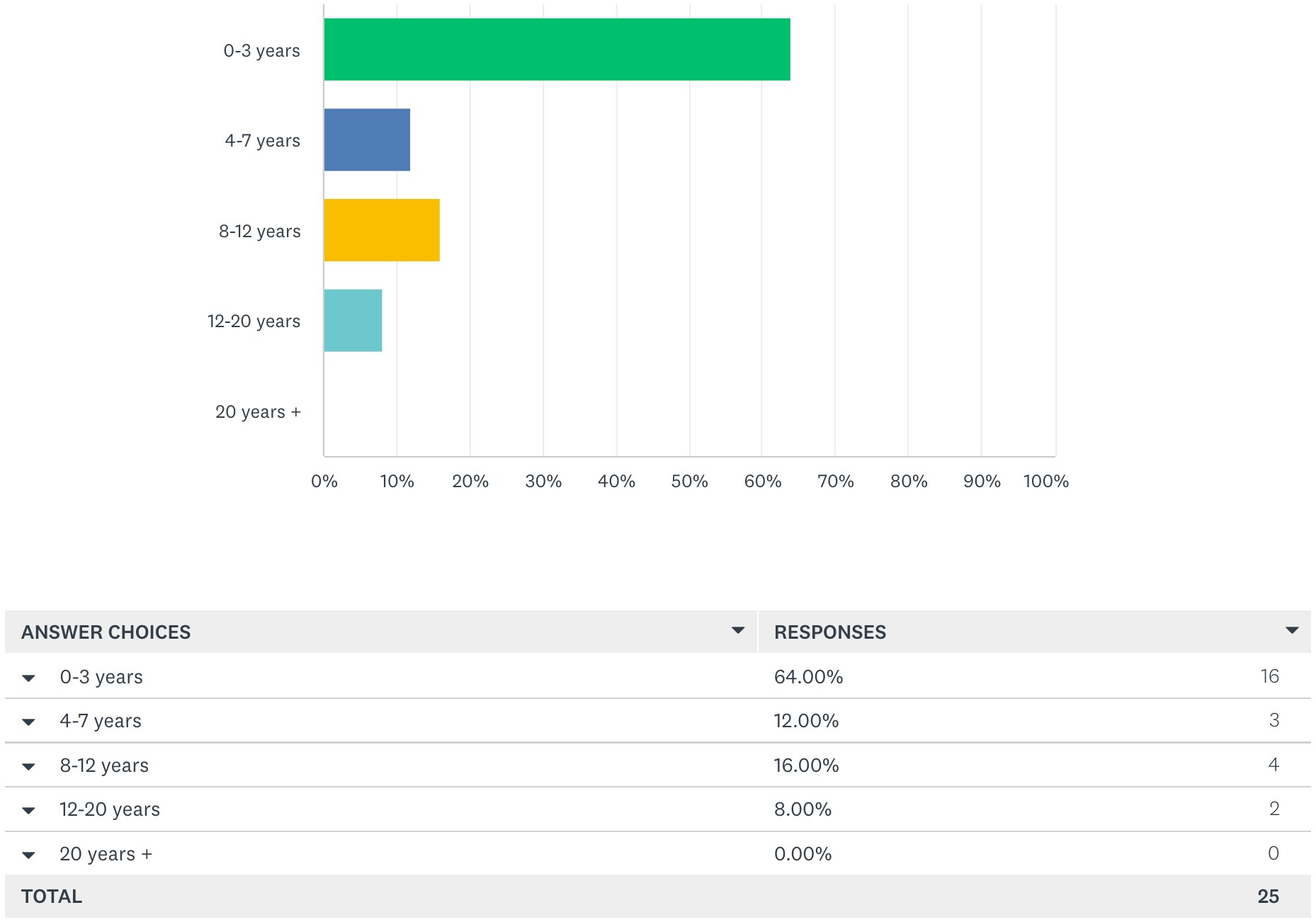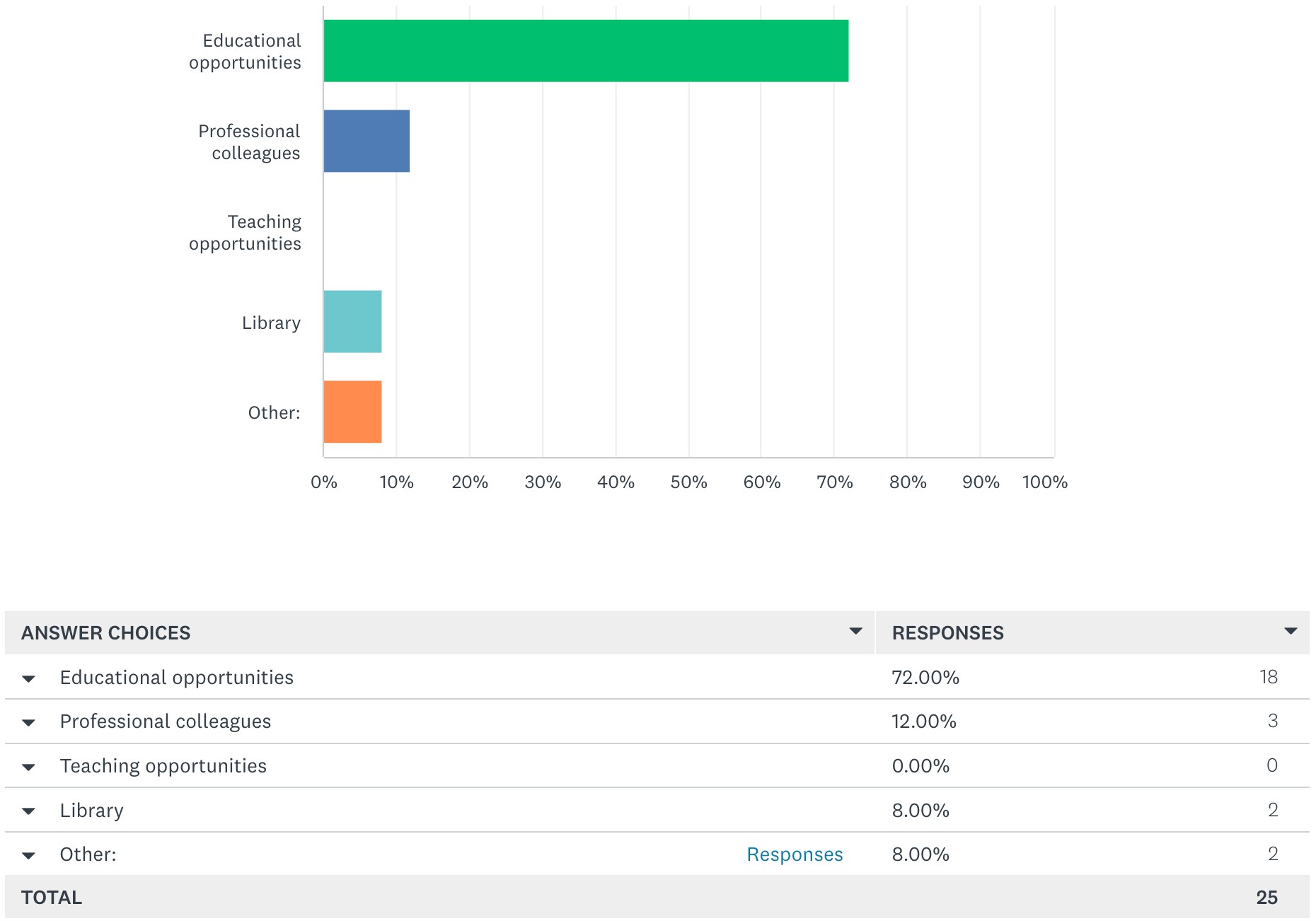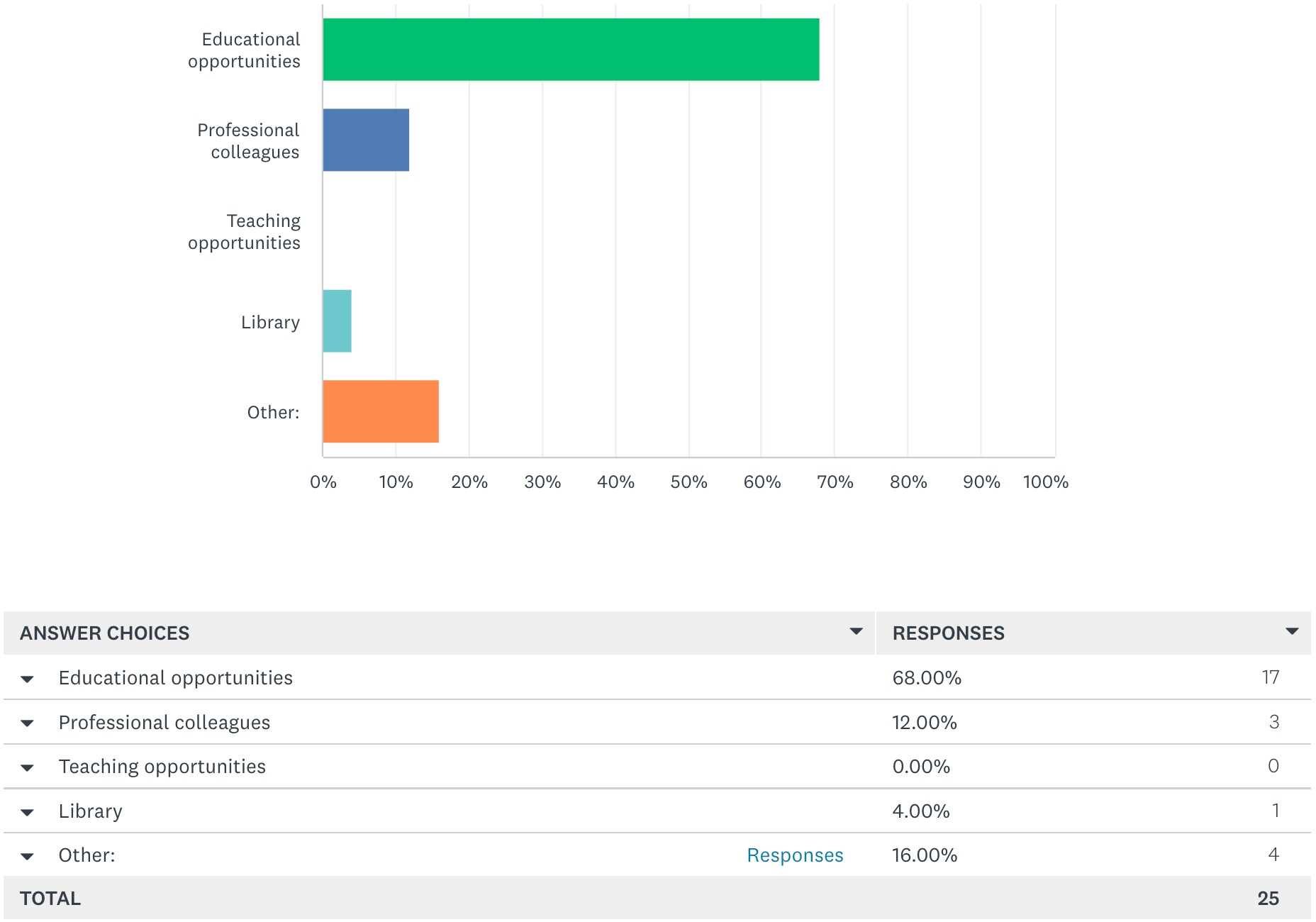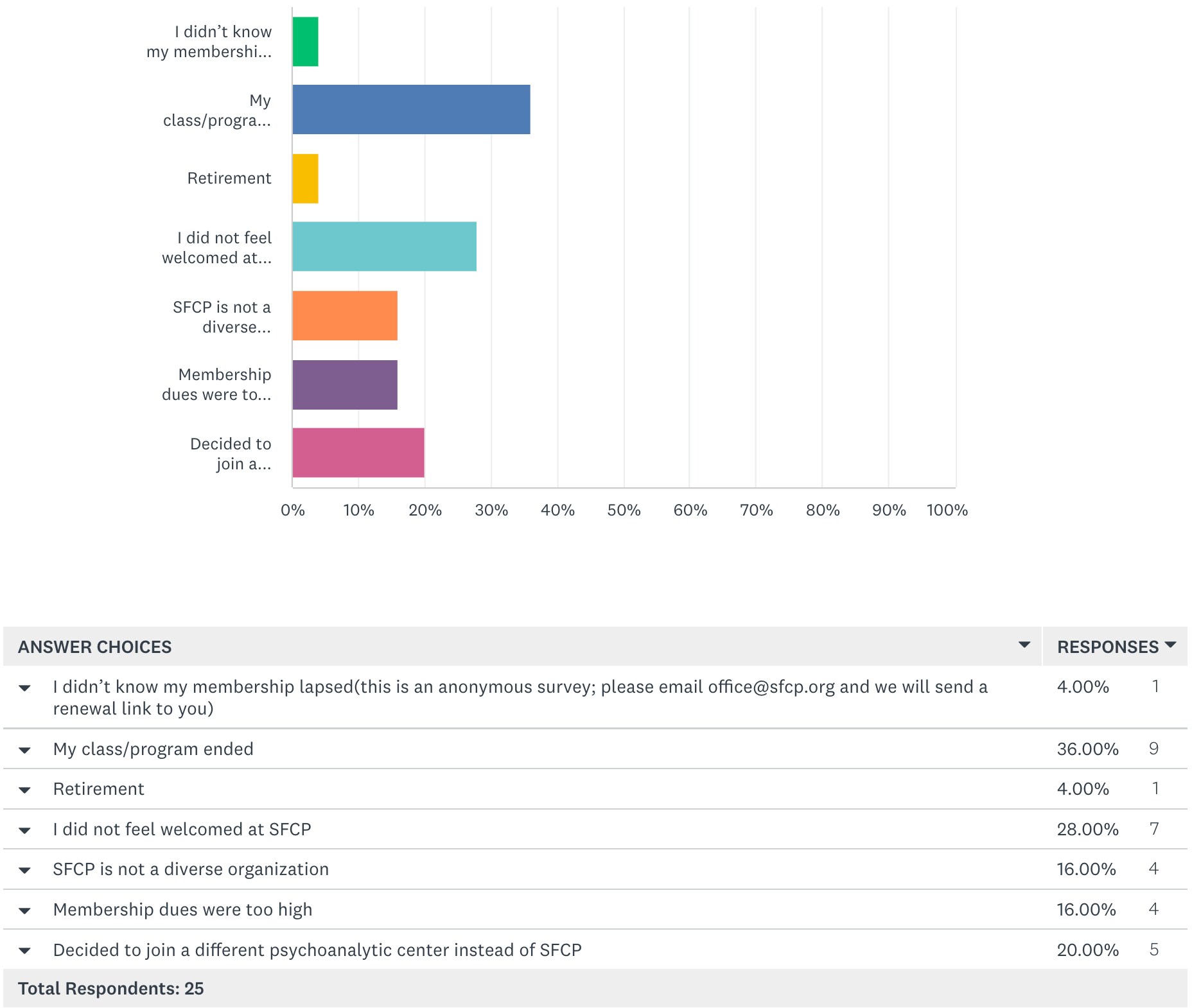Former Member Survey Preliminary Results
Below you will find preliminary results of the Former Member Survey sent a few weeks ago in preparation for the Strategic Plan process. When we sent the survey, we indicated the results will remain confidential. So we are aware of that as we share these results.
Below you will find for each question, the bar graph results, the “Answer Choices” responses in percentages and actual number of responses.
We quickly looked at comments and grouped many of them to create themes. This was not a rigorous process. We are sharing the data in this fashion to give you a general sense of the replies. We will look at the data in more depth later.
If you have any questions or comments, please contact our Administrative Director, Marcia Hodges at marcia.hodges@sfcp.org.
Q1: When you were a member with SFCP, to which category of membership did you belong?
There were 25 respondents and no comments.
Q2: How long were you a member?
There were 25 respondents and no comments.
Q3: Why did you originally join SFCP?
There were 25 respondents and two comments, where the answers included ‘Research Opportunities’ and ‘All of the Above’
Q4: What did you enjoy most about being a member?
There were 25 respondents and four comments, where the answers included Scientific Meetings, Research Opportunities, and meeting others.
Q5 What are the reasons you are no longer a member? (check all that apply)
There were 25 respondents and 16 comments, where the answers included:
- Moved away
- Lack of in person programming
- Lack of online programs
- Membership in other organizations
- Lack of Scientific Meetings
- Challenging interactions with leadership
- Member attitudes – snobbish, privileged, cliquish
- Decided to train elsewhere

